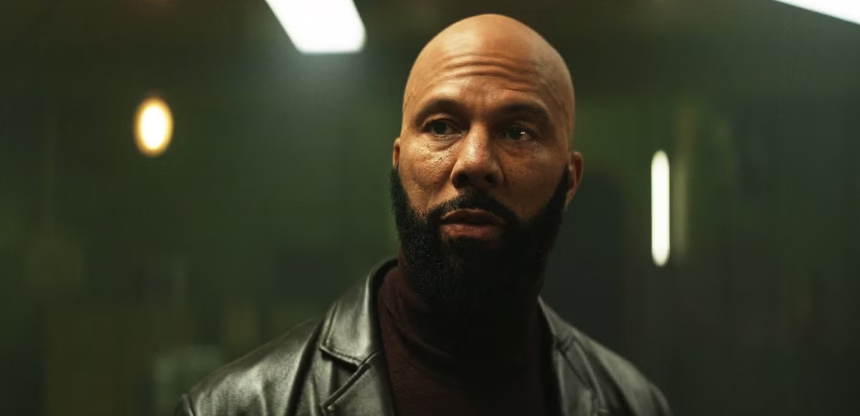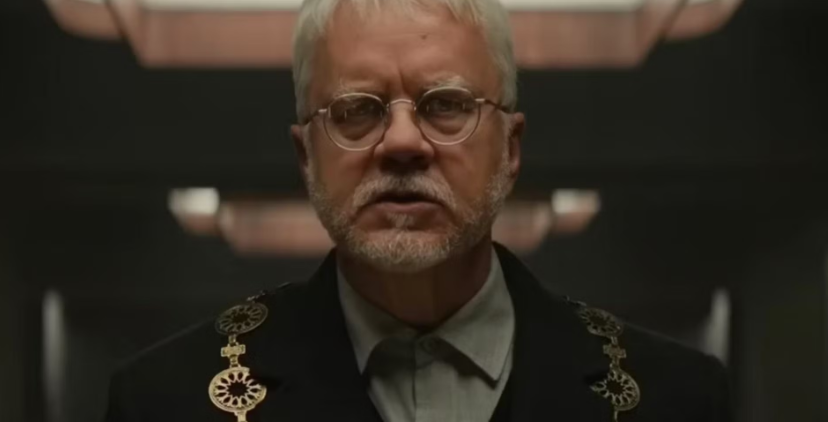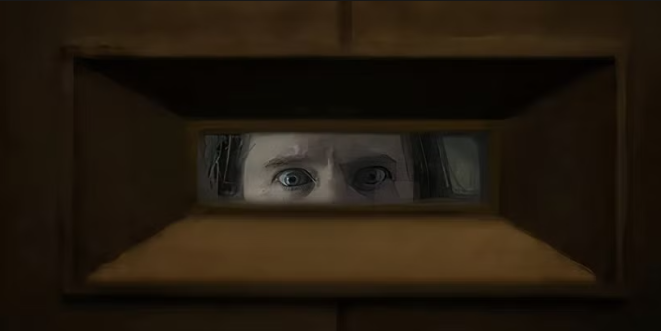Quick Summary
In Silo Season 2, Dr. Nichols makes a bold decision to remove Phoebe’s birth control implant, defying the authoritarian rules of the silo. While he was instructed to only make Phoebe believe it had been removed, his choice was influenced by his daughter Juliette’s rebellious example and Phoebe’s desire to become a mother. This act of defiance not only highlights Dr. Nichols’ moral struggle but also serves as a catalyst for larger themes of resistance, control, and hope in the series. His decision sparks a complex dynamic with the authorities, raising questions about autonomy, personal freedom, and the consequences of challenging oppressive systems.
In the mysterious and tightly controlled world of Silo, every action has a ripple effect. Season 2 has captivated viewers with its deepening exploration of rebellion, control, and ethical dilemmas. Among the most intriguing storylines is Dr. Pete Nichols’ decision to remove Phoebe’s birth control implant—a quiet act of defiance in a society that thrives on regulation.
Why would a respected doctor risk everything to defy the authorities? What does this decision reveal about the silo’s oppressive system? And how does it tie into the larger themes of hope and rebellion? Let’s dive deep into this pivotal moment and uncover its significance in Silo Season 2.
The Context: Silo Season 2 and Its Expanding World
A Quick Recap of Silo Season 1
In Silo Season 1, we were introduced to the dystopian underground society where humanity resides after an unspecified catastrophe makes the surface uninhabitable. The residents live under strict rules enforced by a shadowy governing authority. Each level of the silo represents a different function of society, but questions about truth, freedom, and control constantly loom over the characters.
Juliette Nichols (Rebecca Ferguson) emerged as the central figure—a mechanic turned reluctant sheriff who sought answers about her mother and brother’s deaths. Her refusal to clean the cameras outside the silo during the season finale—a symbolic act of rebellion—was a watershed moment. Her actions stirred unease among the residents and set the stage for Season 2’s broader exploration of rebellion and resistance.
The Role of Dr. Pete Nichols in Silo Season 2
Dr. Pete Nichols (played by Iain Glen), Juliette’s father, was initially a background character in Season 1, used primarily to flesh out Juliette’s emotional journey. However, with Juliette forced outside the silo, Dr. Nichols steps into a more prominent role.
In Season 2, Dr. Nichols is depicted as a compassionate but conflicted figure. Still grieving the loss of his wife and son and grappling with Juliette’s apparent death, he finds himself at a moral crossroads. As a physician, he is sworn to help others, but the silo’s oppressive system frequently forces him to compromise his ethics. This internal struggle becomes central to his decision to remove Phoebe’s birth control implant, defying the strict orders of the silo’s authorities.
Dr. Nichols’ evolution from a rule-abiding doctor to a quiet rebel mirrors his daughter’s journey, making him one of the most compelling characters in Silo Season 2.




The Birth Control Plotline: A Catalyst for Rebellion
Why Does Birth Control Matter in Silo’s Society?
In the silo, population control is a cornerstone of governance. Births are tightly regulated through a lottery system, ensuring that resources are allocated efficiently. Residents who win the lottery are allowed to reproduce, while others are fitted with implants that prevent pregnancy.
This system is justified as a means of preserving balance in the silo’s closed ecosystem. However, it also symbolizes the government’s overreach into the most personal aspects of its citizens’ lives. For many, it raises ethical questions: Is it right to strip people of their reproductive autonomy in the name of survival?
The birth control implants are a literal representation of the silo’s control. They dictate who can hope for a family and who cannot, reducing a deeply human desire to a matter of bureaucracy.
Why Dr. Nichols Was Ordered Not to Remove Phoebe’s Birth Control
Phoebe Wells (Caitlin Innes Edwards) enters Dr. Nichols’ clinic with a fervent hope: she has won the lottery and wants to start a family. However, Dr. Nichols is secretly instructed by the authorities not to remove her implant. Instead, he is told to make Phoebe believe that the procedure has been carried out—a deception he has executed countless times before.
This decision isn’t random. The silo’s authorities monitor and control individuals based on their perceived value to society. In Phoebe’s case, her true worth—or potential danger—may not yet be clear. The fact that she has drawn attention from figures like Bernard and Sims suggests ulterior motives at play.
Why Did Dr. Nichols Remove Phoebe’s Birth Control This Time?
In a rare act of defiance, Dr. Nichols chooses to go against the orders he has so often obeyed. He removes Phoebe’s birth control implant, granting her the chance to become a mother. This moment is significant not only for Phoebe but for Dr. Nichols himself.
- Inspired by Juliette: Dr. Nichols is profoundly influenced by Juliette’s rebellious spirit. Her refusal to clean and her willingness to challenge the status quo have left a mark on him. Her actions serve as a reminder that change, while dangerous, is sometimes necessary.
- Phoebe’s Humanity: Dr. Nichols is deeply moved by Phoebe’s heartfelt desire to be a mother. During their interaction, she shows empathy, even acknowledging his connection to Juliette. Her sincerity and vulnerability touch him on a personal level.
- A Moral Awakening: After years of complying with unethical orders, Dr. Nichols seems to reach a breaking point. Removing Phoebe’s implant becomes his small but meaningful act of rebellion—a way to assert his humanity in a system that seeks to strip it away.
The Complex Dynamics of Phoebe, Bernard, and Sims
Is Phoebe a Genuine Victim or a Spy?
While Phoebe’s story seems genuine, some fans speculate that she may be more than she appears. Shortly after her interaction with Dr. Nichols, she wins the lottery—a coincidence that raises eyebrows. Could Bernard Holland (Tim Robbins) or Robert Sims (Common) have planted her to test Dr. Nichols’ loyalty?
If Phoebe is working for the authorities, it wouldn’t be the first time manipulation has been used as a tactic in Silo. From planting agitators in the mechanical level to orchestrating moments of chaos, Bernard and Sims are no strangers to controlling outcomes. Phoebe’s role, whether authentic or calculated, adds another layer of intrigue to the story.
How Bernard and Sims Use Control to Maintain Power
Bernard and Sims represent the silo’s iron grip on its residents. They enforce rules, orchestrate punishments, and eliminate threats to their authority. Dr. Nichols’ defiance, even in a seemingly small matter, poses a risk to their carefully maintained order.
- Surveillance: Dr. Nichols is under close watch, and his every action could have consequences. Bernard and Sims likely see him as a loose end, particularly after Juliette’s rebellion.
- Manipulation Tactics: From staging events to using people as pawns, the silo’s leaders excel in psychological warfare. Planting Phoebe as a test or trap for Dr. Nichols would fit their established behavior.
- Repercussions for Rebellion: By defying orders, Dr. Nichols puts himself in danger. Bernard and Sims could use this as an excuse to arrest him, tie up the last loose ends of the Nichols family, and reinforce their control over Silo 18.
Themes and Motifs: What the Birth Control Plotline Represents
The birth control plotline in Silo Season 2 is much more than a commentary on reproductive rights. It delves into universal themes and motifs that challenge the audience to reflect on the human condition, the cost of survival, and the nature of rebellion in an oppressive system.
Control vs. Autonomy
At its core, the birth control subplot embodies the silo’s constant struggle between personal autonomy and authoritarian control. The government’s ability to decide who can and cannot reproduce strips individuals of one of the most basic human rights. Dr. Nichols’ defiance highlights the importance of personal choice in a world that has systematically erased it.
This theme resonates with audiences because it’s not just a science-fiction concept—it mirrors real-world debates around bodily autonomy, governmental interference, and reproductive justice.
Rebellion and Hope
The act of removing Phoebe’s implant symbolizes rebellion, but it also represents hope. In a society designed to suppress individuality and maintain order, even the smallest acts of defiance become meaningful. Dr. Nichols’ choice is an assertion that humanity can—and must—exist even under the harshest conditions.
As Dr. Nichols himself describes, having a child in the silo is “a venture of hope.” His decision, influenced by his daughter’s rebellious legacy, reflects his belief in the potential for a brighter future.
Humanity vs. Systematic Dehumanization
The silo thrives on depersonalizing its residents, reducing them to cogs in a vast machine. The birth control implants are a physical representation of this dehumanization. By removing Phoebe’s implant, Dr. Nichols acknowledges her as more than just a statistic or a subject—he affirms her humanity.
This moment forces viewers to consider how systems of power reduce individuals to numbers, whether in dystopian fiction or in real life.
Fan Theories and Predictions About Silo Season 2
The birth control plotline has sparked a wave of fan theories online, with Reddit and fan forums abuzz with speculation about its implications.
Phoebe’s Role: Victim or Spy?
Many fans wonder if Phoebe is genuinely seeking to become a mother or if she’s part of a larger conspiracy. Her sudden lottery win and the specific orders to Dr. Nichols suggest she might be a pawn in Bernard and Sims’ larger plans.
If Phoebe is working for the silo authorities, her role could be to manipulate Dr. Nichols into rebellion, giving Bernard and Sims the justification to eliminate him. Alternatively, she could be an unwitting participant in their schemes, genuinely seeking freedom but caught in their web of control.
Dr. Nichols’ Fate
Dr. Nichols’ defiance places him in direct opposition to Bernard and Sims. Fans are predicting a grim future for the character, with some suggesting that he could become the next target for “cleaning.” However, others believe that his small act of rebellion might inspire a larger uprising among the residents of Silo 18.
Implications for Juliette’s Storyline
Juliette’s impact on the silo remains a central thread, even in her absence. Some fans theorize that Dr. Nichols’ rebellion could lead to revelations about Juliette’s survival or spark a movement that continues her legacy.
Why This Storyline Resonates With Viewers
The birth control plotline resonates deeply because it taps into universal fears and desires: the yearning for freedom, the fight for autonomy, and the hope for a better future.
Real-World Parallels
From government-imposed family planning policies to debates about reproductive rights, the plotline mirrors real-world struggles. It forces viewers to confront uncomfortable questions about how much control a government should have over its citizens and what happens when personal freedoms are sacrificed for the greater good.
Relatable Characters and Emotional Stakes
Dr. Nichols’ moral dilemma and Phoebe’s earnest desire to become a mother create an emotional anchor for the audience. Their humanity, set against the cold machinery of the silo’s system, makes their story compelling and relatable.
A Timeless Fight Against Oppression
The idea of rebelling against an unjust system is a timeless theme. From 1984 to The Hunger Games, stories about resistance have always resonated with audiences. In Silo, this struggle is given a fresh twist, with personal acts of defiance like Dr. Nichols’ decision carrying as much weight as large-scale uprisings.
Conclusion: The Significance of Dr. Nichols’ Decision
Dr. Nichols’ choice to remove Phoebe’s birth control implant is one of the most profound moments in Silo Season 2. It’s a small act, but its implications are vast, symbolizing hope, humanity, and resistance in a world designed to suppress all three.
By defying the authorities, Dr. Nichols not only honors his daughter Juliette’s legacy but also sparks a flicker of rebellion within himself. His actions remind viewers that even in the face of overwhelming control, individual choices matter.
As Season 2 unfolds, this plotline will likely serve as a catalyst for larger events, with Dr. Nichols’ defiance rippling through Silo 18 and beyond. Whether Phoebe’s story ends in joy or tragedy, her interaction with Dr. Nichols underscores the enduring human desire for freedom, connection, and hope—even in the darkest of places.
Frequently Asked Questions
Here are some common questions that viewers and fans of Silo may have regarding Dr. Nichols’ decision to remove Phoebe’s birth control implant and the overall plotline in Season 2:
1. Why did Dr. Nichols remove Phoebe’s birth control implant?
Dr. Nichols removed Phoebe’s birth control implant as an act of rebellion against the authoritarian regime controlling the silo. While he was instructed to only make Phoebe believe the implant was removed, he chose to follow his own moral compass and remove it for real. His decision was influenced by his daughter Juliette’s example of defying the system, as well as Phoebe’s desire to have children, which he found deeply moving.
2. What does the birth control plotline symbolize in Silo?
The birth control plotline in Silo represents themes of control versus autonomy, rebellion, and the human desire for hope. The silo’s government controls reproduction as a way to maintain power, and Dr. Nichols’ decision to defy this authority highlights the importance of personal choice and individuality, even in an oppressive society.
3. Is Phoebe working with Bernard or Sims?
There is a strong fan theory that Phoebe might be secretly working for Bernard or Robert Sims, especially since her sudden lottery win coincides with Dr. Nichols being ordered not to remove her birth control. Some viewers speculate that Phoebe could be a pawn in a larger scheme to manipulate Dr. Nichols into rebellion, giving Bernard and Sims the opportunity to use him as a scapegoat.
4. Will Dr. Nichols face consequences for removing Phoebe’s birth control?
Given the authoritarian nature of the silo, it’s likely that Dr. Nichols will face severe consequences for his actions. His decision puts him in direct conflict with Bernard and Sims, who are watching him closely. Some fans speculate that this could lead to his arrest or “cleaning” as part of the regime’s efforts to eliminate rebellion.
5. How does Juliette’s storyline tie into Dr. Nichols’ actions in Season 2?
Although Juliette is no longer physically present in Season 2, her legacy lives on through her father, Dr. Nichols. Her rebellious act of walking over the hill and defying the silo’s authority has inspired Dr. Nichols to take a similar stand. His actions in Season 2 reflect the continuing influence of Juliette’s resistance against the oppressive system.
6. What does Dr. Nichols’ decision mean for the future of the silo?
Dr. Nichols’ decision to remove Phoebe’s birth control implant could serve as a spark for a larger rebellion within the silo. His defiance against the authority might inspire other residents to take a stand, leading to a shift in the power dynamics within Silo 18. This act of rebellion could be the catalyst for future episodes, as it challenges the rigid control imposed by the silo’s leaders.
7. What is the significance of Phoebe wanting to be a mother?
Phoebe’s desire to become a mother represents the natural human longing for connection and a future beyond the oppressive life inside the silo. Her hope to have children in a world that tries to control reproduction makes her a symbol of hope and defiance against the silo’s strict policies. Dr. Nichols is moved by her desire, which ultimately influences his decision to help her.
8. How does the birth control plotline relate to real-world issues?
The birth control subplot in Silo draws strong parallels to real-world discussions about reproductive rights, bodily autonomy, and government control. It prompts viewers to reflect on the ways in which power structures can limit personal freedoms, and it highlights the ongoing debates about control over women’s bodies and reproductive decisions.
Author’s Note
Thank you for taking the time to read through this exploration of one of Silo Season 2’s most captivating storylines: Dr. Nichols’ decision to remove Phoebe’s birth control implant. This act of defiance resonates on many levels, both within the fictional world of the silo and in the real-world themes it echoes. The beauty of Silo lies not just in its dystopian setting, but in how it taps into timeless questions about autonomy, power, and resistance.
As we journey deeper into the series, it’s clear that the characters, especially Dr. Nichols, continue to grapple with their sense of morality in a world that constantly tests it. His decision to defy the authorities reflects a broader theme of individual agency, reminding us all that sometimes, standing up for what is right comes at a great personal cost.
This post was written with the goal of offering a deeper look into those themes, analyzing the motivations behind key decisions, and reflecting on the larger societal implications of the story. Silo is not just a thrilling science fiction series but a mirror to some of the most pressing ethical and political questions of our time.
If you’re a fan of Silo, or if you’ve found yourself intrigued by the complex dynamics of the show, I hope this post sparked new thoughts and insights. As we wait for what’s next in the series, let’s continue to ask: what does it mean to challenge authority? And, perhaps more importantly, what are we willing to risk to protect our autonomy and our futures?
Thank you again for reading. I’d love to hear your thoughts, predictions, or questions—let’s keep the conversation going!
By SSonko David
Ssonko David is a skilled entertainment news writer with a wealth of experience spanning over four years in the industry. Having collaborated with several reputable media outlets, David combines his extensive knowledge with a genuine passion for storytelling to create engaging and insightful articles.
About Patoga Nation
Patoga Nation Inc. is a leading digital media platform founded in 2020, dedicated to delivering unparalleled insight, analysis, and news in the entertainment, gaming, and pop culture industries.
Editorial Standards
At Patoga Nation Inc. (“Patoga Nation”), we are deeply committed to producing high-quality, accurate, and universally beneficial content that resonates with integrity and credibility. Our editorial standards reflect our mission to inform, engage, and empower our audience across diverse topics, from breaking news to in-depth guides, reviews, opinion pieces, and features.
